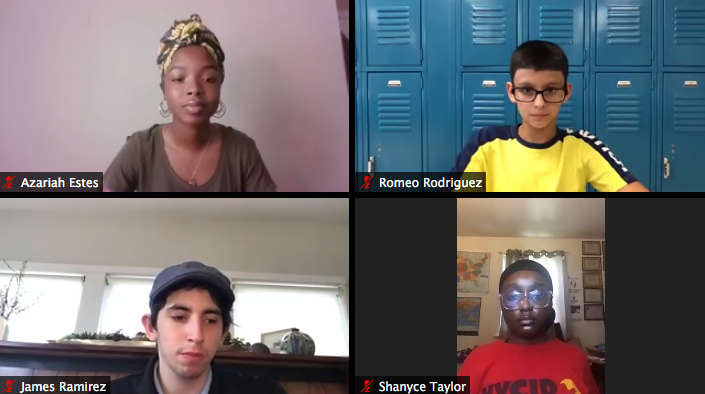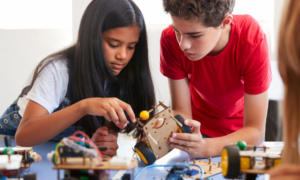
Screenshot from America's Promise Alliance
Students discussed concerns about the new school year, such as bringing coronavirus home to vulnerable adults, in a forum hosted by America’s Promise Alliance and The 74 last week.
Young people across the country are returning to school during a global pandemic after a summer that dramatically highlighted racial inequality. Under these extraordinary conditions, many don’t feel their experiences and concerns are being heard.
That’s the message of a youth town hall held last week by America’s Promise Alliance, a nonprofit that describes its mission as making the promise of America accessible to all young people, and the education site The 74.
Students at the virtual event called for organized discussions at school to address racial inequality. They also urged school leaders to prioritize students’ mental health and said they have a strong need for personal connection with their teachers when school is conducted virtually.
The protests of the summer can’t be ignored, said Shanyce C. Taylor, a senior at Port Richmond High School in Staten Island, New York.
“It’s a topic that has to shake the table,” she said. “I definitely think they should have an open conversation on how this is affecting students.”
Teachers and other adults should inform themselves about racism, said Azariah “Z” Estes, an 11th-grader at Ritenour High School in St. Louis, Missouri. “[In history classes] the topic of racism … is kind of whitewashed,“ she said. Lynchings, beatings and killings happened there.
“You can’t hide it … it has to be expressed,” she said.
Committees hold promise, they say
The America’s Promise town hall is not the only forum in which students are seeking to shape school reopenings and pushing for greater voice. The Move School Forward campaign, for example, is a network of student-led groups seeking a positive school climate, history lessons that analyze racial injustice and more support for marginalized students, among other things.
At the America’s Promise event, Jackson Escamilla, a senior at Alamo Heights High School in San Antonio, Texas, discussed his work on a committee educating the school about disabilities. He said the committee had an impact. People changed their ideas, he said. Student equity committees could have a similar impact around racism, he said.
Ilana Drake, another town hall attendee, said she is a member of an equity committee at her school, the High School for Math, Science, and Engineering at City College of New York, where she is in 12th grade.
“It’s been a great resource … I think every high school should have one,” she said.
The participants said they would like to see a focus on students’ mental health.
“It would overall make the school better,” said Amalia Villafana, an 11th-grader at Forest Grove High School in Forest Grove, Ore.
A poll of the 545 participants in the town hall showed that 67% will be starting school virtually and 30% will have a mix of virtual and in-person classes. But 70% think that their schools are not well-prepared to start this year. A big concern of students is that they will bring the coronavirus home to vulnerable adults, a poll showed.
More than half of participants said their school had not asked for student input on the back-to-school plan this year. Nearly one-third said their school has never provided an opportunity to discuss racism.
To bring the perspective of young people to school leaders, America’s Promise Alliance and The 74 are starting a four-week letter-writing campaign in which young people will write letters to school principals, superintendents and community leaders. The organizations will also put together a discussion guide for student groups addressing racial equity.































